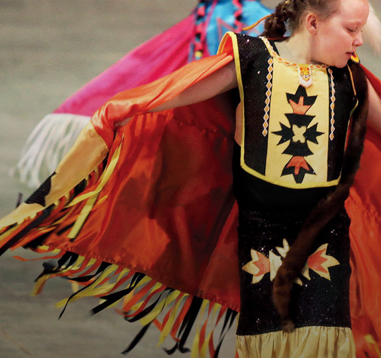Termination & Restoration
The Confederated Tribes of the Grand Ronde Community of Oregon is a federally recognized Native American Tribe. The Tribe is a confederation of the Tribes that inhabited western Oregon from what is now northern California to the north shore of the Columbia River, from the Cascade Mountains in the east to the Pacific Ocean in the west. Its principal Tribes are the Kalapuya, Molalla, Chasta, Umpqua and Rogue River, with several other smaller bands and groups.
The Confederated Tribes of Grand Ronde was established in the winter of 1856 when the federal government forced member Tribes to cede their ancestral lands and relocated to a 60,000-acre reservation in Oregon’s Coast Range. Beginning with the Rogue River and Chasta Tribes in southern Oregon, the “Trail of Tears” began to move northward, with other tribes joining the march as it passed their homelands. During the journey, many died from the harsh winter conditions.
The Grand Ronde Reservation was established by treaty arrangements and an Executive Order of June 30, 1857. However, on August 13, 1954, Congress passed the Western Oregon Indian Termination Act which severed the trust relationship between the federal government and the Tribe. In the early 1970s, efforts began to reverse the tide of termination. On November 22, 1983, with the signing of Public Law 98-165, the Grand Ronde Restoration Act, the task was accomplished.
The Confederated Tribes of Grand Ronde is now a federally recognized Tribe. Its 10,800-acre reservation is located in Yamhill County. The Tribe provides services to its members and other Indians through a variety of programs. The official governing body for the Confederated Tribes of Grand Ronde is the nine-member Tribal Council, elected by the general membership. Current Tribal enrollment is approximately 5,100 members, a majority of whom live in Oregon. Revenues from gaming and the sale of Tribal timber each year go to support programs and governmental functions. These include the Tribe’s education, housing, economic development, natural resources, cultural resources, and health and wellness services.
The Tribe opened its health clinic in 1997. It provides medical and dental services to Tribal members, other Native Americans and people residing in the Grand Ronde community. The Tribe also provides addiction treatment, counseling services, various social services programs and operates its own Tribal Court. The Tribe’s largest business project, Spirit Mountain Casino located in Grand Ronde on Highway 18, opened in 1995. Spirit Mountain Lodge, a hotel owned by the Tribe, opened in December 1998. The casino and lodge employ approximately 1,500 people – the largest employer in Polk County. The Tribe is working on several business ventures to diversify is economy.
The Tribal Governance Center, completed in October 1998, houses the offices of Tribal Council, Administration, Human Resources, Public Affairs, Economic Development and Tribal Court. The Grand Ronde Tribal Housing Authority, established in 1996, has completed two Tribal housing developments: Grand Meadows Manufactured Home Park and a 38-unit Elder Housing complex. In addition the Tribe has built three foster care lodges for Tribal Elders that provide 24-hour nursing supervision in a residential environment. The Tribe also has expanded its housing for owner-occupied market rate housing, and affordable housing. The newest housing includes 72 rental units.

